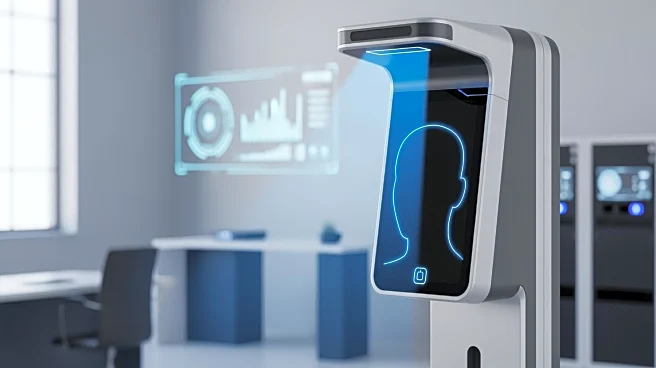What's Happening?
The Home Office is set to trial live facial-recognition technology at Holyhead port to identify individuals on deportation watchlists attempting to re-enter the UK. The trial, involving Immigration Enforcement
officers and two police forces, aims to test the technology's effectiveness in recognizing deported individuals as they pass through monitored zones. The initiative is part of a broader strategy to detain and deport illegal immigrants, with plans to use facial recognition more extensively. The trial will be conducted with equipment and expertise from South Wales Police and Greater Manchester Police, both experienced in using such technology.
Why It's Important?
The use of facial recognition technology in immigration enforcement represents a significant development in the UK's approach to border security. It highlights the government's focus on leveraging advanced technology to enhance public safety and manage immigration challenges. The trial's outcomes could influence future policies and the deployment of similar technologies across other ports and borders. However, the initiative also raises concerns about privacy, data protection, and potential biases in facial recognition systems. The government's commitment to transparency and monitoring the impact of the technology will be crucial in addressing these concerns and ensuring ethical use.
What's Next?
Following the trial, the Home Office will review the effectiveness and impact of the facial recognition technology. Data from the trial, including alerts and engagements, will be shared publicly, excluding personal information. The results may inform decisions on expanding the use of facial recognition in immigration enforcement. Stakeholders, including civil rights groups and privacy advocates, are likely to scrutinize the trial's outcomes and push for safeguards against potential misuse. The government may face pressure to balance security objectives with privacy rights, leading to further discussions on the ethical implications of surveillance technologies.
Beyond the Headlines
The trial's implications extend beyond immediate security concerns, as it touches on broader issues of surveillance, civil liberties, and the role of technology in governance. The use of facial recognition technology raises ethical questions about the balance between security and individual rights, particularly in the context of immigration. The trial may prompt discussions on the need for robust regulatory frameworks to govern the use of such technologies and protect citizens' rights. It also highlights the importance of transparency and accountability in deploying advanced surveillance systems.









